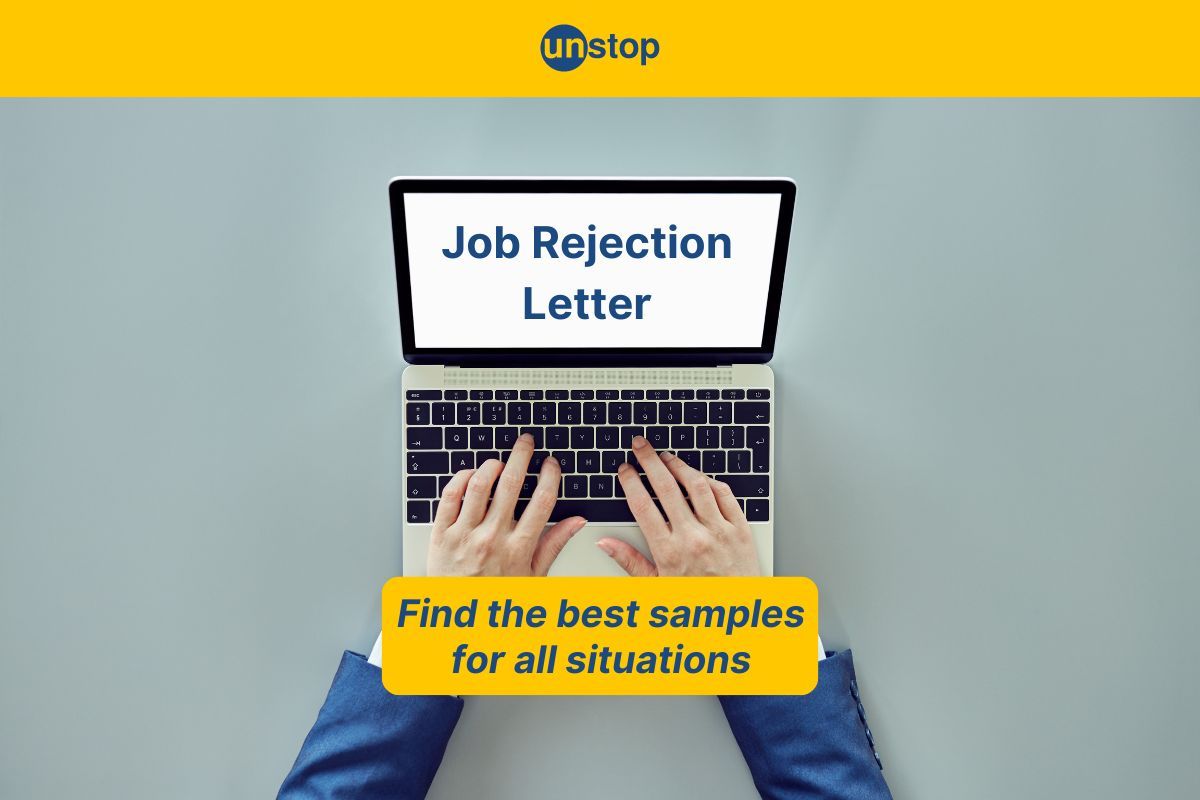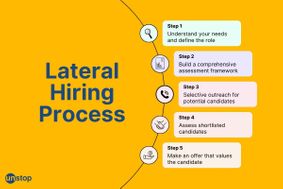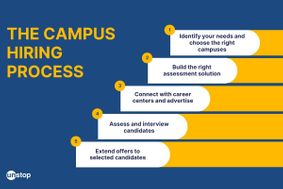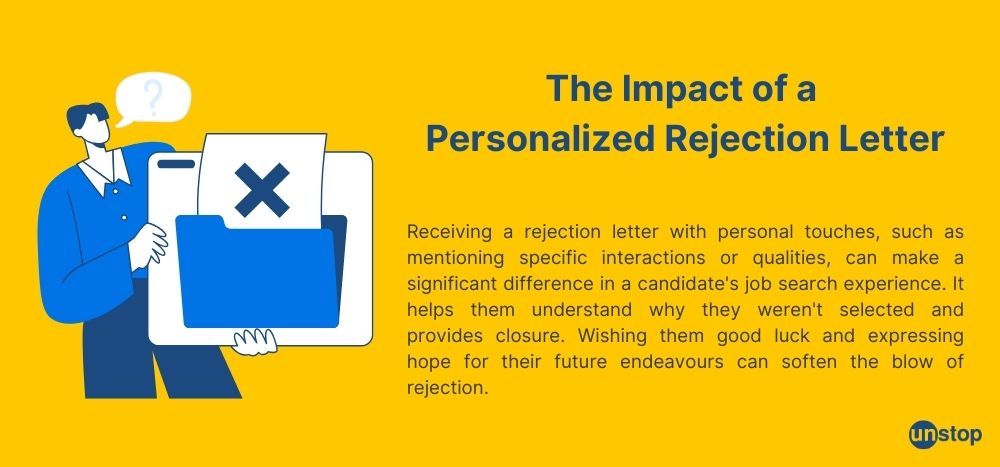- What’s A Job Rejection Letter?
- Why Send Job Rejection Letters?
- Types of Rejection Letters
- Job Rejection Letter Format
- Crafting Rejection Letters
- Job Rejection Letter Samples
- Writing A Job Rejection Letter: Best Practices
- Summary
- Frequently Asked Questions
Job Rejection Letter For Unsuccessful Candidates: Find Top Samples

Job rejection letters are an essential part of the recruitment process, serving as a means to inform unsuccessful candidates of the outcome of their application. While delivering disappointing news, these letters also provide an opportunity for recruiters to showcase professionalism and empathy in their communication.
Crafting personalized job rejection letters can not only help maintain a positive employer brand but also offer valuable insights into how candidates handle setbacks and demonstrate resilience. This aspect of the hiring process is crucial in shaping the candidate experience and can impact future interactions with potential talent.
What’s A Job Rejection Letter?
Definition: A job rejection letter is a formal communication sent by an employer to inform applicants that they have not been selected for a position.
Components: This letter typically includes components such as:
- Name of the company
- Name of the candidate
- Company or Hiring manager’s contact information
- The Job title or position
- Reason for rejection
Content: The content of the letter broadly covers the following topics:
- A polite opening thanking the candidate for their interest in the position.
- A clear statement that the candidate has not been selected for the job.
- A brief explanation of the reasons for the decision.
- Encouragement for the candidate to continue applying for future opportunities with the company.
- A closing statement wishing the candidate success in their job search.
These components are important for providing closure to candidates and maintaining a positive employer brand reputation.

Why Send Job Rejection Letters?
Professionalism
Sending job rejection letters showcases professionalism by providing closure to applicants and respecting their time and effort. This practice demonstrates respect for individuals' contributions and efforts during application.
It is essential to uphold a professional image by communicating clearly with all candidates, even those not selected for the position. It reflects well on the company's values.
Decision-Making Insight
Rejection letters offer valuable insights into the decision-making process for candidates. They clarify why an applicant was not chosen, helping them understand areas for improvement.
Companies enable candidates to learn from their application experience by providing feedback through rejection letters. This transparency fosters growth and development in future job pursuits.
Company Reputation
Formal rejection letters contribute positively to a company's reputation. They show that the organization values all applicants' time and effort, regardless of the outcome.
Maintaining a reputation for respectful communication enhances employer branding. Candidates who receive thoughtful rejection letters are more likely to view the company favorably, even after being turned down.
Types of Rejection Letters
Initial Contact
Candidates can be rejected right after submitting an application. It could be because they don’t meet the basic eligibility criteria or because the position was already filled when they applied. At this stage, right after the initial contact, recruiters can send a candidate rejection letter, conveying appreciation for their interest and informing them of rejection.
Sending a rejection letter at this stage can help maintain a positive impression and encourage future applications.
Interview Stage
After interviews, providing personalized feedback in a job rejection letter is beneficial. It helps candidates understand areas for improvement. Personalized rejection letters show professionalism and respect for the candidate's efforts, enhancing the employer's reputation.
Post-Offer Decline
For candidates who have received job offers but decline them, a rejection letter is necessary. It should express gratitude for considering the offer. Sending a polite job rejection letter, even in this situation, can positively impact the candidate and maintain goodwill.
Job Rejection Letter Format
Here’s a candidate rejection letter format that can be personalized as per a company’s requirements:
Dear [Candidate's Name],
Thank you for taking the time to interview with us for the [Job Title] position. We appreciate your interest in joining our team.
After careful consideration, we regret to inform you that we have selected another candidate whose qualifications more closely match the role's requirements. This decision was not made lightly, as we were impressed by your skills and experience.
We want to thank you for your interest in our company and wish you all the best in your future job search. We will keep your resume on file for future opportunities that may be a better fit.
Thank you again for your time and interest in [Company Name].
Sincerely,
[Your Name]
[Your Title]
[Company Name]
Crafting Rejection Letters
Personalized Approach
When crafting template rejection letters, it's crucial to maintain a personalized touch. Address the candidate by name and mention specific details from their application.
Tailoring the letter to reflect the applicant's experience and qualifications shows that you value their effort and time. This personalization can soften the blow of receiving a rejection.
Importance of Feedback
Include constructive feedback in template rejection letters. Providing insights on why the candidate was not selected can help them improve for future opportunities.
Feedback such as "lacked experience" or "better suited for a different role" can guide candidates on areas for development. This not only benefits the individual but also enhances your company's reputation for transparency and professionalism.
Job Rejection Letter Samples
Job Rejection Letter Sample 1: When the position is already closed/was recently closed
Dear [Candidate],
Thank you for your interest in the [Position Title] at [Company Name]. We appreciate the time and effort you put into your application.
We regret to inform you that the position has already been filled by another candidate. We received a large number of highly qualified applicants, making the selection process very competitive.
We want to thank you for your interest in joining our team and wish you all the best in your future endeavors. Your skills and experience are impressive, and we encourage you to keep an eye on our career page for any future opportunities that may be a better fit for your qualifications.
Thank you again for your interest in [Company Name]. We wish you success in your job search and future career.
Sincerely,
[Hiring Manager's Name]
[Company Name]
Job Rejection Letter Sample 2: When the qualifications are more suited for a different role
Dear [Candidate],
Thank you for your interest in the [specific role] position at our company. We appreciate the time and effort you put into the application process.
After careful consideration, we have determined that while your qualifications and experience are impressive, they are more aligned with a different role within our organization. We believe that your skills and background would be better suited for [specific role].
We encourage you to apply for the [specific role] position if you are still interested in opportunities at our company. Your experience and expertise would be a valuable addition to that team.
Thank you again for considering a career with us. We wish you all the best in your job search and future endeavors.
Sincerely,
[Your Name]
[Company Name]
Job Rejection Letter Sample 3: When a candidate is rejected after failing the skill assessment
Dear [Candidate],
Thank you for taking the time to complete the skill assessment as part of the application process for the [Job Title] position at [Company Name]. We appreciate your interest in joining our team.
After carefully reviewing your assessment results, we regret to inform you that we have decided not to move forward with your application at this time. The skill assessment is an important part of our evaluation process, and unfortunately, your results did not meet the requirements for the position.
We understand that receiving this news may be disappointing, but we want to offer you some constructive feedback. We recommend focusing on improving your [specific skill or area] to enhance your future job prospects. Continuous learning and development are key to success in today's competitive job market.
We encourage you to keep pursuing opportunities that align with your skills and interests. Your dedication to self-improvement will undoubtedly lead you to a rewarding career path. We wish you all the best in your future endeavors.
Thank you again for considering [Company Name] as a potential employer. We appreciate the effort you put into the application process.
Sincerely,
[Your Name]
[Title]
[Company Name]
Job Rejection Letter Sample 4: When the company has to pause hiring unexpectedly
Dear [Candidate],
I hope this message finds you well. I wanted to reach out to inform you that, unfortunately, our company has had to pause our hiring efforts temporarily. This decision is not a reflection of your qualifications or performance during the hiring process.
I want to express my sincere appreciation for your interest in joining our team and for the time and effort you dedicated to the interview process. Your skills and experience are impressive, and we truly value the opportunity to consider you for a role within our organization.
While we are unable to move forward with your application at this time, please know that we will keep your resume on file for future opportunities. We would welcome the chance to revisit your candidacy when our hiring efforts resume.
Thank you once again for your understanding and interest in our company. We wish you all the best in your job search and future endeavors.
Warm regards,
[Your Name]
[Company Name]
Job Rejection Letter Sample 5: When the company receives another application from a more qualified candidate
Dear [Candidate],
Thank you for taking the time to apply for the [Position] with [Company]. We appreciate your interest in joining our team.
After careful consideration and review of all applications, we regret to inform you that we have decided to move forward with another candidate whose qualifications more closely align with the requirements of the role.
We want to emphasize that this decision was not a reflection of your skills or experience, but rather a result of finding a candidate whose background and expertise better matched the needs of the position.
We genuinely appreciate your interest in [Company] and wish you all the best in your future endeavors. Thank you again for considering us as a potential employer.
Sincerely,
[Your Name]
[Title]
[Company]
Job Rejection Letter Sample 6: When a candidate asks for a higher compensation package than what you can offer
Dear [Candidate],
Thank you for your interest in the [Job Title] position at [Company Name]. We appreciate the time and effort you put into your application and interviewing process.
After careful consideration, we regret to inform you that we will not be moving forward with your application at this time. While your qualifications and experience align well with the requirements of the role, we are unable to meet your compensation expectations within our current salary bracket.
We understand that salary is an important factor in your decision-making process, and we respect your need to seek a compensation package that reflects your worth. We wish you all the best in your job search and future endeavors.
Thank you again for considering [Company Name] as a potential employer.
Sincerely,
[Your Name]
[Title]
[Company Name]
Job Rejection Letter Sample 7: When a candidate was rejected after the interview
Dear [Candidate],
Thank you for taking the time to interview with us for the [Job Title] position. We appreciate your interest in joining our team and your efforts throughout the recruitment process.
After careful consideration, we regret to inform you that we have decided not to move forward with your application at this time. While your qualifications and skills were impressive, we feel that there were some areas where you may benefit from further development and experience.
The feedback provided by our interviewers highlighted that you struggled to provide specific examples of how you have successfully handled certain situations in the past. Additionally, they noted that your responses lacked depth and detail, making it challenging for them to fully assess your capabilities for the role.
We understand that receiving this news may be disappointing, but we encourage you to continue honing your skills and gaining more experience in your field. We believe that with continued growth and development, you will find success in your future endeavors.
Thank you once again for considering [Company Name] as a potential employer. We wish you all the best in your job search and future career pursuits.
Sincerely,
[Your Name]
[Your Title]
[Company Name]
Job Rejection Letter Sample 8: When discrepancies occurred during the background check
Dear [Candidate],
We regret to inform you that after conducting a thorough background check, discrepancies and inconsistencies were discovered that have led us to disqualify you from the position you applied for.
We take our hiring process very seriously, and unfortunately, the information uncovered during the background check does not align with the standards and requirements of the role you were being considered for.
We appreciate the time and effort you put into the application process and wish you all the best in your future endeavors.
Sincerely,
[Your Name]
[Company Name]
Writing A Job Rejection Letter: Best Practices
Here are some best practices that recruiters can keep in mind when sending a rejection letter to an unsuccessful applicant:
- Be prompt in sending the rejection letter
- Keep the tone professional and respectful
- Provide feedback if possible, but keep it constructive
- Thank the candidate for their time and interest in the position
- Offer to keep their resume on file for future opportunities
- Avoid giving false hope or making promises for future consideration
Summary
Crafting rejection letters is a crucial aspect of the hiring process. By understanding the types of rejections, creating templates, and personalizing your responses, you can enhance your company's reputation and maintain positive relationships with candidates.
Sending rejection letters not only reflects professionalism but also provides closure for applicants, showing that you value their time and effort. Embracing this practice can lead to a stronger employer brand and a more engaged talent pool.
Frequently Asked Questions
1. Why is sending rejection letters important?
Sending rejection letters shows professionalism, respects applicants' efforts, and maintains a positive employer brand. It also provides closure for candidates and encourages them to apply in the future.
2. What are the common types of rejection letters?
Common types include general rejection letters, interview-specific feedback letters, and personalized rejection letters tailored to individual candidates. Each type serves different purposes when communicating with applicants.
3. How can I craft a template rejection letter effectively?
Craft a template rejection letter by being concise yet empathetic, thanking the candidate for applying, providing positive feedback where possible, and encouraging them to apply for future opportunities at your organization.
4. Why should rejection letters be personalized?
Personalized rejection letters show candidates that their application was considered thoughtfully. They help maintain a positive relationship with applicants who may be suitable for future roles and demonstrate respect for their time and effort.
5. What are the benefits of sending rejection letters?
Sending rejection letters enhances your company's reputation, fosters goodwill among applicants, encourages reapplication in the future, and contributes to a positive candidate experience. It also helps build a talent pipeline for future hiring needs.
Suggested Reads:
I’m a reader first and a writer second, constantly diving into the world of content. If I’m not writing or reading, I like watching movies and dreaming of a life by the beach.
Login to continue reading
And access exclusive content, personalized recommendations, and career-boosting opportunities.
Subscribe
to our newsletter
Blogs you need to hog!

Organize Hackathons: The Ultimate Playbook With Past Case Studies

What is Campus Recruitment? How To Tap The Untapped Talent?

Lateral Hiring: A Complete Guide To The Process, Its Benefits, Challenges & Best Practices











Comments
Add comment